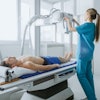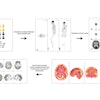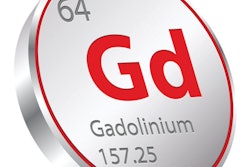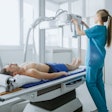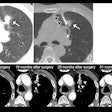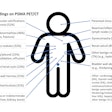Dear AuntMinnie Member,
Breast elastography can be a useful tool to evaluate breast cancer by providing the ability to differentiate between malignant and benign lesions. Our readers apparently agree, making a story on a breast elastography talk presented at the recent American Institute of Ultrasound in Medicine meeting our most-viewed article for the past week.
Breast elastography has been available for the past 15 years, but it hasn't been widely implemented, according to Dr. Stamatia Destounis of Elizabeth Wende Breast Care in Rochester, NY. She offers several thoughts for improvements that could be made to the technique to improve its popularity.
Another major ultrasound story that broke this week was a study by U.K. researchers that found that performing fetal ultrasound scans late in pregnancy could benefit clinicians by giving them time to reorient babies in the breech position before they are born. And researchers from Spain applied computer-aided diagnosis software to ultrasound exams of thyroid nodules to assess their risk of malignancy.
You'll find these stories and more in our Ultrasound Community.
Ga-68 PSMA PET/CT for prostate
Another popular article this past week was a story on the use of PET/CT with the radiopharmaceutical gallium-68 (Ga-68) prostate-specific membrane antigen (PSMA) for staging prostate cancer.
Australian researchers found that PET/CT with Ga-68 PSMA worked so well that it cut the number of bone scintigraphy cases nearly in half only six months after they started using the exam, as indicated by the story in our Molecular Imaging Community.
CT lung screening
CT lung cancer screening continues to generate interest, especially as researchers try to find ways to make the exam more effective and encourage more high-risk smokers to get screened.
Italian researchers found that tracking high-risk individuals who got screened for more than five years revealed a mortality reduction of 39% -- far higher than the 20% to 26% reductions found in previous U.S. and European trials. The findings indicate that the benefits of CT lung screening add up over time.
But despite the exam's life-saving benefit, not enough high-risk individuals are getting scans. U.K. researchers tried using a video and brochure about the potential harms and benefits of CT lung screening to see if it helped. Find out how well it worked in our CT Community.
